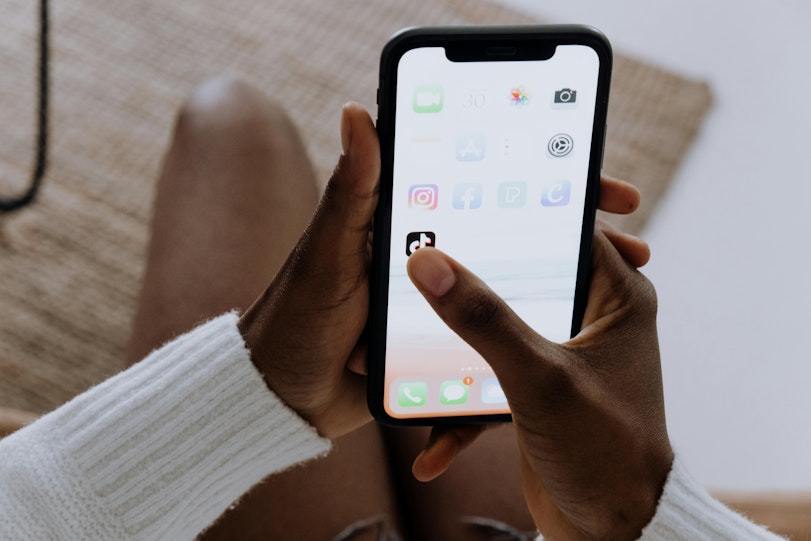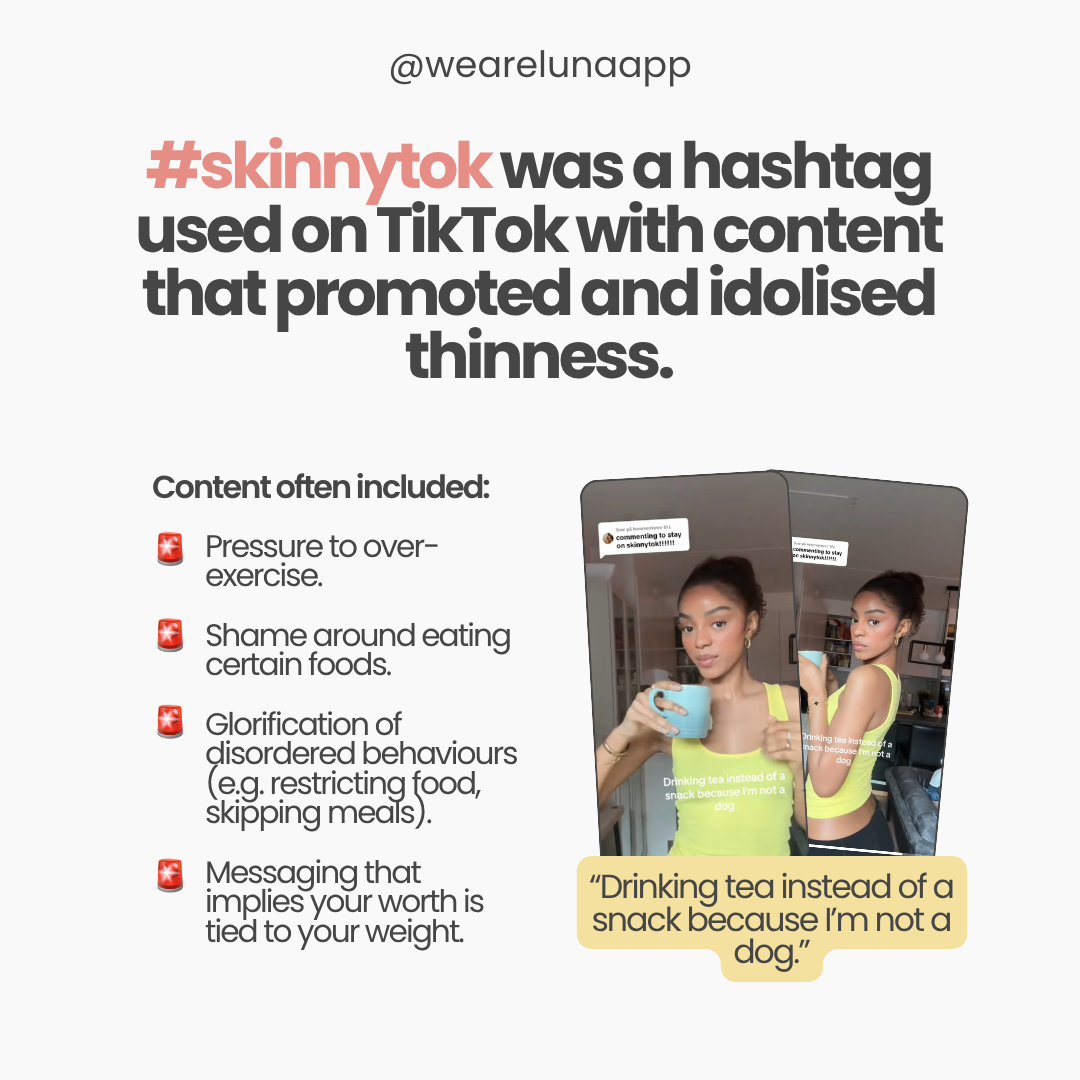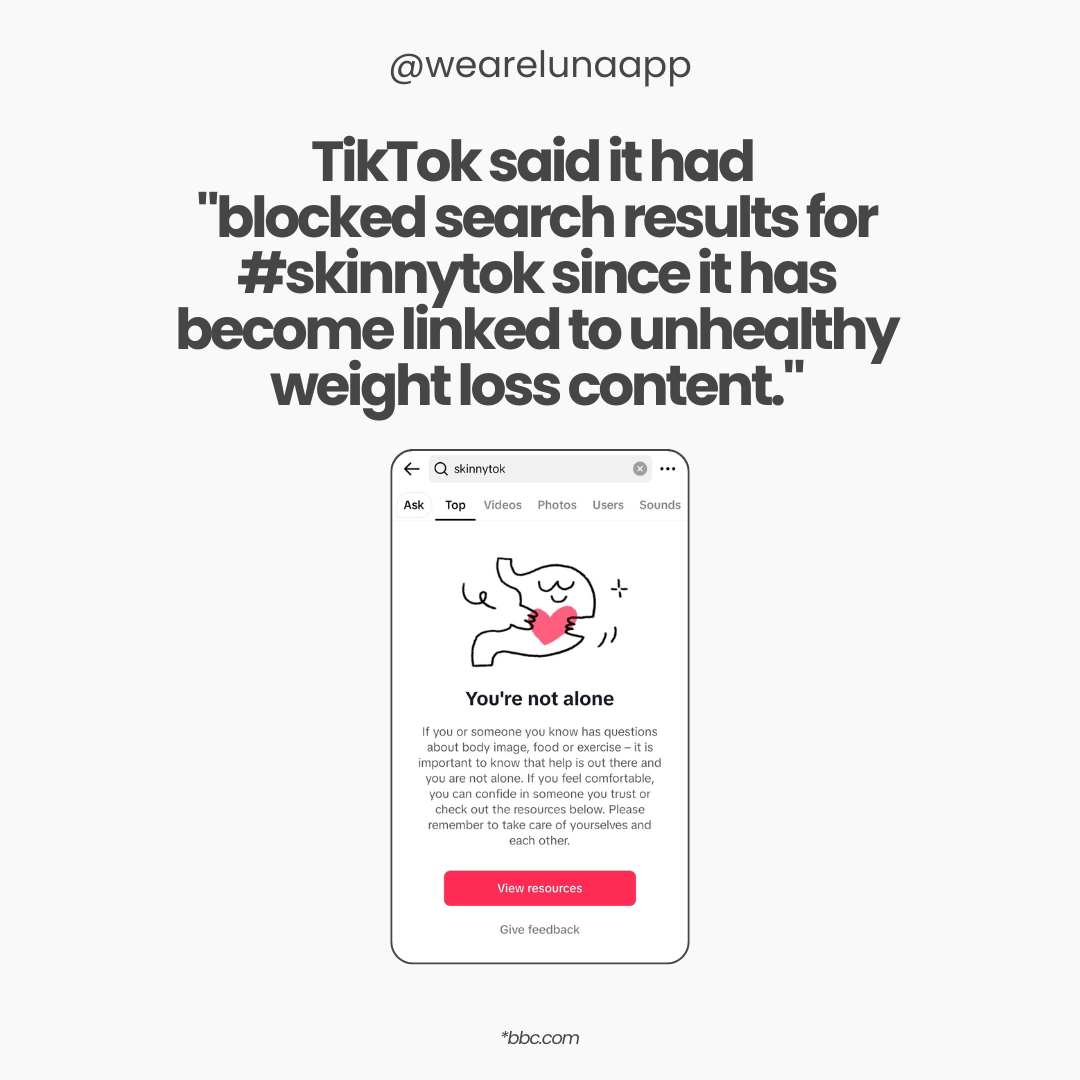What is SkinnyTok and should parents worry?
Explaining the TikTok trend

Updated December 2, 2025 • Medically reviewed by Dr. Katie Knight
Medically reviewed by Dr. Katie KnightIn this article
Quick summary
- SkinnyTok is a TikTok hashtag promoting extreme thinness and unrealistic beauty standards, putting teens’ self-esteem at risk
- 1 in 5 teens told luna in a poll that social media makes them feel insecure, and trends like SkinnyTok are likely the cause of this among other things
- Parents can help by discussing body positivity, monitoring harmful trends their teen might be following, and supporting healthy digital habits by introducing positive platforms like luna

As a parent, it can feel like a full-time job just keeping up with TikTok trends.
You might hear your teen mention SkinnyTok or see videos circulating online that leave you uneasy, wondering if your teen is seeing them.
It’s completely natural to worry about how these trends affect your teen’s self-esteem, mental health, and body image.
luna hears about these topics from loads of teens every single day via the anonymous questions feature in the app, many of whom feel pressure from platforms like TikTok to look a certain way.
So, what exactly is SkinnyTok, and how can parents support their teen through the issues it raises?
What is SkinnyTok?
SkinnyTok is a corner of TikTok where videos promote extremely thin body ideals.
The trend often features:
- “Fitness transformations” that exaggerate weight loss
- Comparisons to influencers or celebrities with unrealistic physiques
- Weight loss tips that are extreme, unbalanced, or unsafe such as the salt water diet
While some teens watch SkinnyTok casually or for inspiration, the content can subtly influence body image, normalising unhealthy ideals.

Thankfully, TikTok has banned the hashtag #SkinnyTok.
However, this doesn’t mean that content promoting unhealthy eating patterns has disappeared from social media.

Why SkinnyTok is a concern
Even if your teen scrolls with a “just for fun” mindset, SkinnyTok content can come up in their feeds randomly and can have real consequences:
- Body dissatisfaction: seeing extreme thinness repeatedly can make normal body shapes feel “wrong”
- Unrealistic goals: teens may try unsafe diets or over-exercise to emulate what they see online
- Social pressure: the trend can normalise bullying or teasing based on weight
A recent survey by luna found that 1 in 5 teens say social media makes them feel insecure.
SkinnyTok is a perfect example of a trend that can trigger those feelings, even in confident teens.
How parents can help
It can be tricky to support your teen without feeling like you’re policing their every scroll.
But, there are some practical things you can do to tackle SkinnyTok and its effects on your teen:
- Open a conversation by asking your teen what they’re seeing on SkinnyTok and how it makes them feel
- Remind your teen of body positivity and that bodies come in all shapes and sizes, and celebrate their achievements and qualities that have nothing to do with appearance
- Guide social media use by encouraging them to follow accounts that promote diversity, health, and realistic bodies
- Encourage them to question what they see on social media – the use of filters and AI images means that a lot of content is actually fake
- Help your teen build skills and hobbies outside of social media – activities that promote teamwork, creativity, or personal achievement can strengthen self-esteem
- Explore wellbeing apps for teens like luna to provide them with a safe space to ask questions about body image, social media pressures, and self-esteem, with guidance from trusted professionals

Building resilience in a digital world
SkinnyTok, like many viral trends, isn’t inherently dangerous, but its emphasis on extreme thinness and unrealistic beauty ideals can subtly shape teens’ perceptions of themselves, at a time when they are particularly vulnerable to being influenced.
By staying informed, maintaining open conversations, focusing on body positivity, and encouraging healthy online habits, parents can help teens navigate social media with confidence and resilience.
Remember: it’s not about banning social media, because we know that's no mean feat in this day and age, it’s about helping your teen develop the skills to use it safely and positively.

How we created this article:
luna's team of experts comprises GPs, Dermatologists, Safeguarding Leads and Junior Doctors as well as Medical Students with specialised interests in paediatric care, mental health and gynaecology. All articles are created by experts, and reviewed by a member of luna's senior review team.
We'd love to keep in touch!
Sign up to our parent newsletter for emails on the latest teen trends, insights into our luna community and to keep up to date
By signing up, you are agreeing that we can use your email address to market to you. You can unsubscribe from marketing emails at any time by using the link in our emails. For more information, please review our privacy statement.